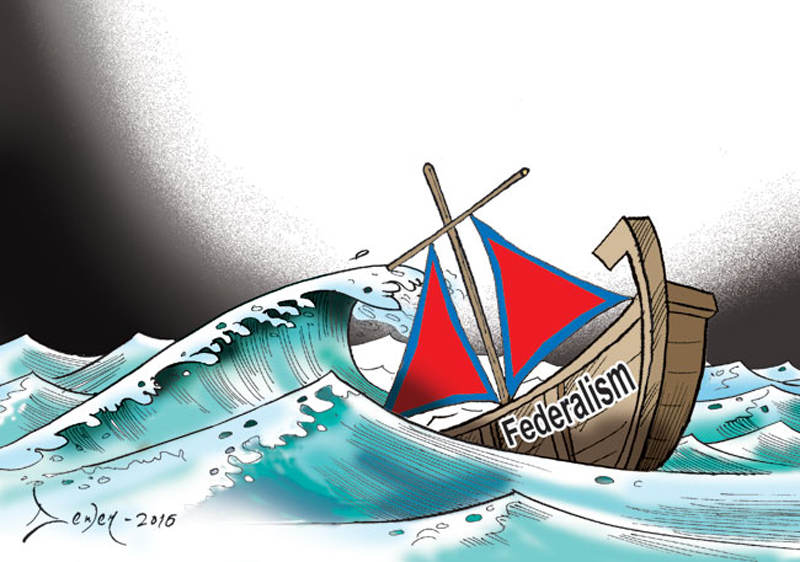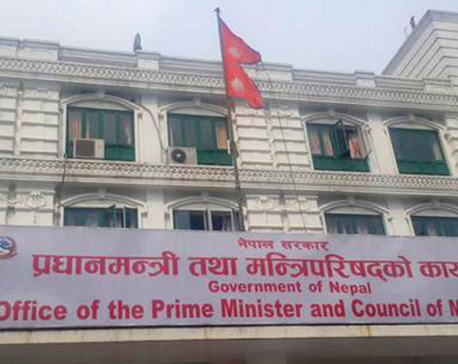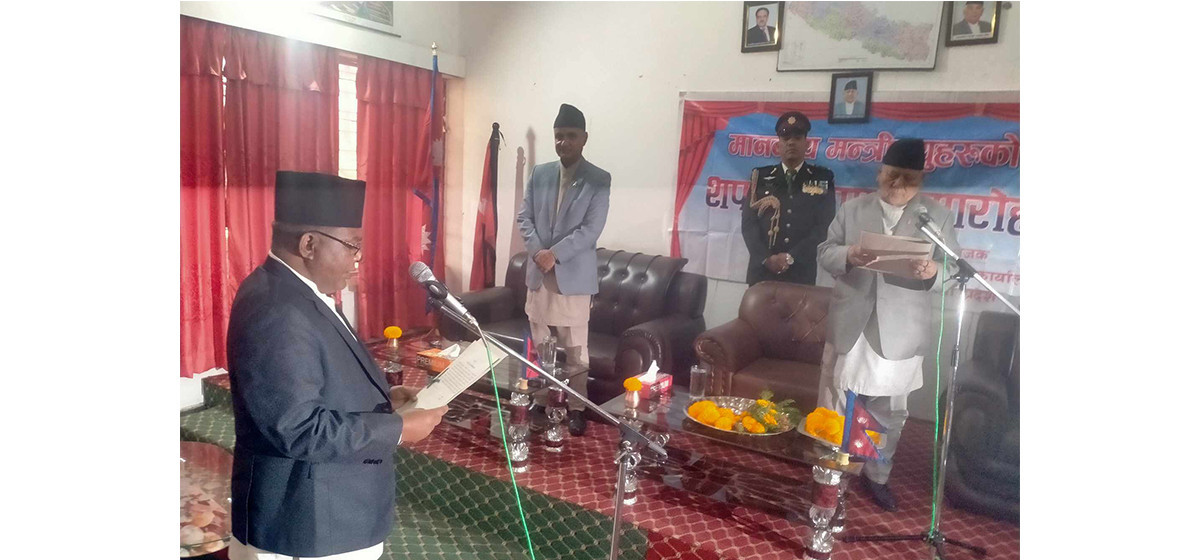
OR
Blog

The readiness to serve the public is one face of federalism, and it is not even its essential face, as far as the definition of federalism as a balancing of powers goes.
Federalism, which is defined as the balancing of government powers, leads, in its presentation, to a ready-to-serve attitude toward the public from each of those powers. This itself indicates a contradiction between the definition — which emphasizes a balance — and the actual presentation in the public where the balancing aspect is absent but an attitude of servitude is there. In other words, this attitude of servitude is not essential to federal powers, and applied federalism does not necessarily have to have servitude to the community as a part of its operational structure. In this article, I argue for a political culture surrounding federalism to balance the wills that attempt to concentrate or diffuse the power of federal entities.
We could take the case of Nepal, a relatively new federal country, and hypothesize that there is to be a federal police force and a local and/or state police force in Nepal soon similar to the Federal Bureau of Investigations and the local county sheriff in the United States. The definition of federalism given above could imply there is constant communication between these two powers. But, we can sense that this communication has been averted because of the mandates of each of those powers, which define their responsibilities as holders of their respective offices. A mandate of any form usually subverts the need for the constant definition and redefinition of roles and responsibilities. The actions that are obtained by a general acceptance of mandates and charters are usually guided by the formulation of roles and responsibilities found therein. In other words, a formal but isolated duty is established by the mandate and the charter which is followed by each of the operative federal units.
But my contention is that a ‘middle ground,’ or an interaction-based political culture suited to federalism’s distribution of powers, is also a need. We do not know if work around such a culture is being put in in the Nepali context. We can plausibly say that the distribution of powers in Nepal as a federal country would take place with the use of mandates, which is a more structured balancing of powers than one that is fluid and based on the will of particular individuals. This move, away from the individual political will, has usually worked in the world’s federal countries, but this is just good fortune and contingent, for, we cannot say, even in federalism, that if an individual will was to express itself, over the mandate of the division of powers, there would be balancing at that level. That is to say, a balancing will that offsets the will of one party. Here we see how even in federalism an authoritarian tendency may arise. This is all due to the ethical focus on responsibilities, in the formation of official federal mandates and charters, which does not adequately capture the activation of the will.
The political culture concerning federalism I am thinking of is precisely that: something that enables the balancing of wills, rather than for one will to express itself over the dormant structure of mandates and charters. Simply put, we have to be ready in Nepal for a singular will that expresses itself when it is in a position of political power and thereby causing some sort of centralization of power at the expense of other federal powers. Without even considering whether this would produce positive and/or negative outcomes for the country, it must be countered as it expresses itself in political culture through the manifestation of another will of an individual or group in the federal structure. But this political culture has not been focused upon, although it could be brought into being, in our example, by regularizing communication channels, such as between the federal police and local police.
What I hope this article has shed light on is that the ‘turning-toward’ aspects of federal powers is only a public phenomenon. Readiness to serve the public is one face of federalism, and it is not even its essential face, as far as the definition of federalism as a balancing of powers goes. The dormant structure of mandates and charters, seemingly from a singular governmental origin, has allowed the balancing of powers to occur without the expression of a singular individual will. But this does not mean that such a will does not have space to arise in federalism. We must just ensure that when such a will arises, others in power can counter it, or at least offset it even if it is the will in more active manifestation in the federal structure. For this to be achieved, we need a political culture of communication between the individuals in federal entities in Nepal.
You May Like This

Federalism: learning by doing
Issues have emerged regarding effective implementation of federalism. But there is a long way to go and these issues can... Read More...

One has to spend a whole day to get citizenship certificate in Rukum (West)
BIRENDRANAGAR, Nov 9: Badrinath Gaire has recently arrived here at the District Administration Office in Rukum (West) as the Chief... Read More...

Govt ‘failed to act’ on intelligence about threat from Chand outfit
KATHMANDU, May 28: The government’s intelligence apparatus is being blamed for failing to track the activities of the Netra Bikram... Read More...







Just In
- Karnali: Maoist Center’s Pariyar appointed as minister without portfolio
- Illam by-election: Nepal-India border to be 'sealed' from midnight today
- Gold price rises by Rs 500 per tola
- Emir of Qatar returns home after wrapping up state visit to Nepal
- Senate passes bill forcing TikTok’s parent company to sell or face ban, sends to Biden for signature
- PM Dahal hosts luncheon in honor of Qatari Emir
- Tata Sumo accident in Kavre leaves 10 injured, three in critical condition
- West Indies ‘A’ cricket team arrives in Nepal




_20240423174443.jpg)








Leave A Comment